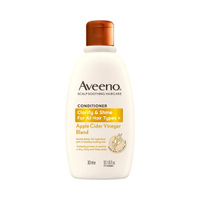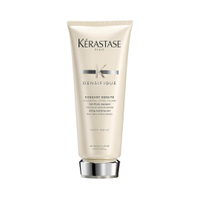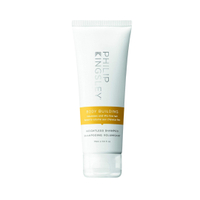The 8 best conditioners for fine hair to nourish strands without any heavy residue
Our beauty experts' tried and tested guide to the best conditioners for fine hair that yield lightweight, soft and glossy results...
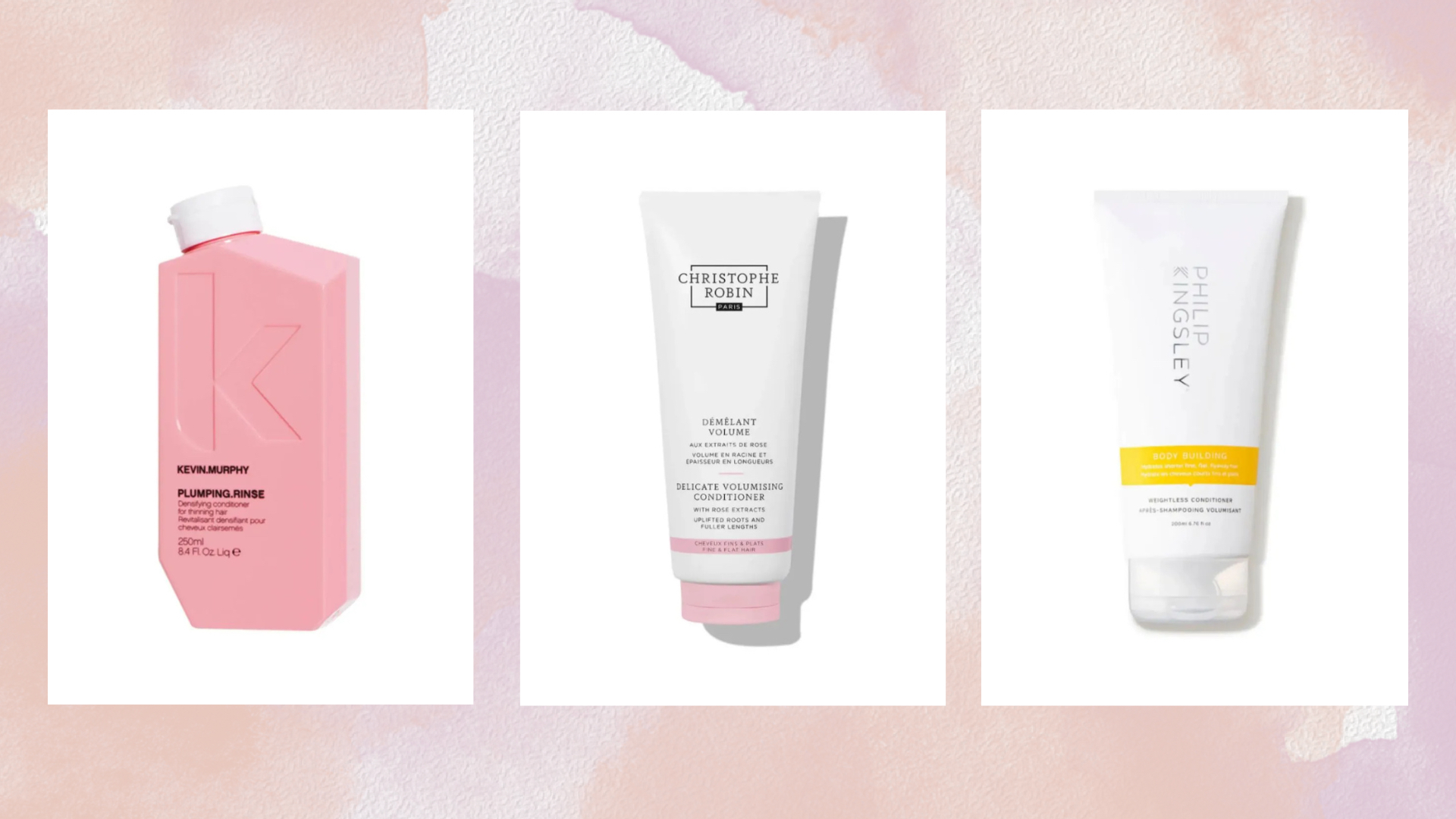

Sennen Prickett
Most – if not all – of us know that a good shampoo and conditioner are the basic building blocks of haircare. But the best conditioner for fine hair will not only moisturise and leave strands glossy, as all good ones should, it'll do so weightlessly. For those on the hunt for such formulas, our tester has reviewed an array of formulas that are both nourishing and lightweight, whittling them down to provide you with a guide to the very best on the market.
Regardless of your hair type, the best shampoo and conditioner for your hair type are key to any good routine. Those with fine hair – be that be in terms of the actual strands, a head of hair that is on the thin side, or both – often want products that will boost volume without weighing strands down. This is something I understand all too well; my hair is bleached with a slight natural wave, while my scalp gets greasy super quickly.
Having also reviewed the best shampoo for fine hair, I made it my mission to also find the best conditioners for fine hair that will nourish strands while leaving them looking as voluminous as possible. After a lot of thorough testing, these are my reviews of the very best buys on the market – including the standout Kevin Murphy Plumping Rinse Conditioner that tops this list.
Best conditioners for fine hair deals
These deals are checked daily and we will continue to do so to ensure that all of the products below are still in stock, still discounted and, most importantly, are the very best deals around at the moment.
Packing in the shine-boosting powers of apple cider vinegar, this Aveeno conditioner is already very reasonably priced, but right now you can bag it for 36% off at Amazon. An even bigger bargain!
Bag a 20% saving on this Kérastase thickening formula, which has been designed specifically for those with fine and fragile hair in mind. Formulated with a cocktail of nourishing and strengthening ingredients, such as hyaluronic acid, this conditioner plumps strands for added density, boosting thickness and volume without weighing hair down.
You can currently save 10% on the premium Philip Kingsley Body Building lightweight conditioner, which is designed to boost volume, moisture and shine – all without weighing hair down, meaning you can finally wave goodbye to tangled strands and unwanted flyaways without heaviness.
The best conditioner for fine hair or thinning hair, reviewed by our beauty experts
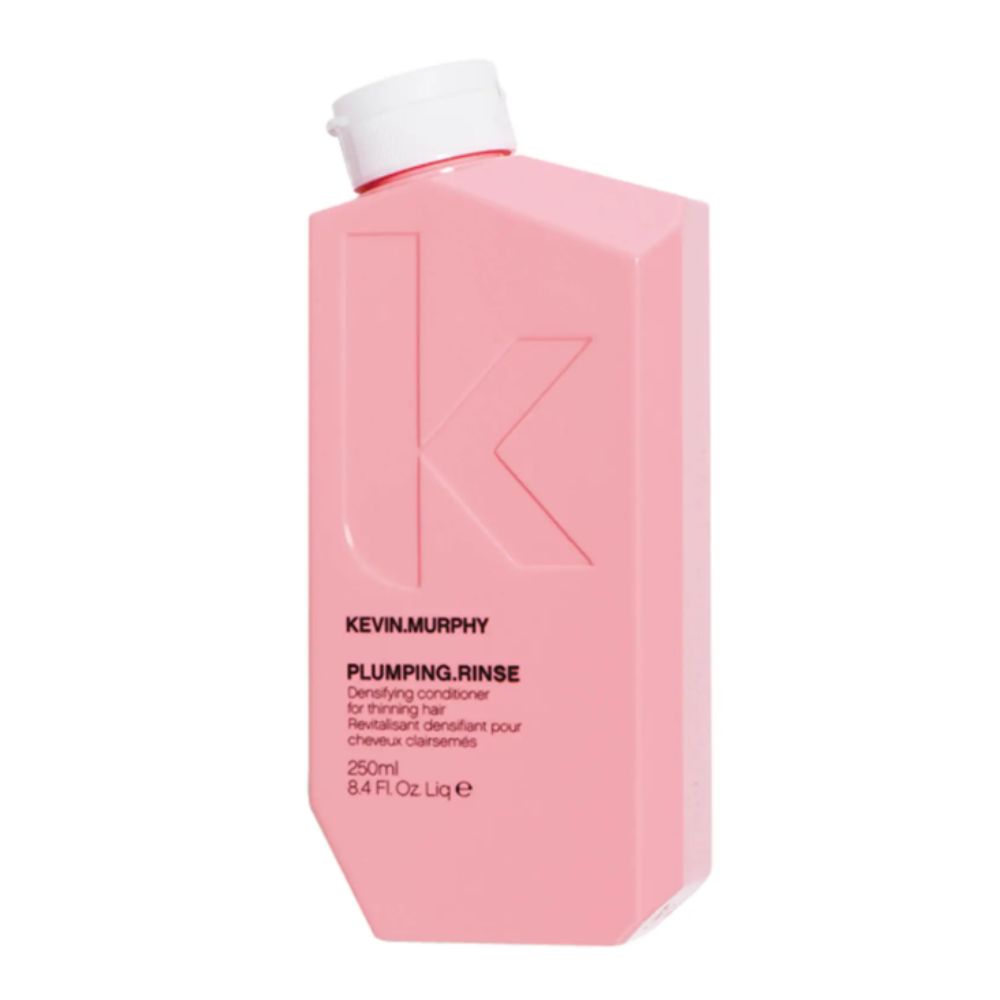
RRP: £33 for 250ml | Key ingredients: Rice protein, biotin, hemsleya root, shea butter
At the risk of sounding dramatic, Plumping Rinse by KEVIN.MURPHY is the best conditioner for fine hair that I've ever tried – and I've tried a lot of them. It's full of nourishing and strengthening ingredients including rice protein, biotin, shea butter and oleanolic acid from hemsleya root, but doesn't weigh my hair down, instead giving it a full appearance.
Initially, I thought it seemed a little thick for a conditioner designed with finer hair in mind. But when it came to actually using it, I can tell you it felt light as a feather. My strands felt thicker and stronger – even while my hair was still wet – and the fragrance was lovely, too. I saw instant lift and strength from root to tip. This Kevin Murphy Plumping Rinse seems to be a popular choice; our Editor, Kerrie Hughes, is also a fan of its ability to immediately get thicker results.
Buy if: You want to instantly boost volume in your hair
Avoid if: You want an affordable conditioner
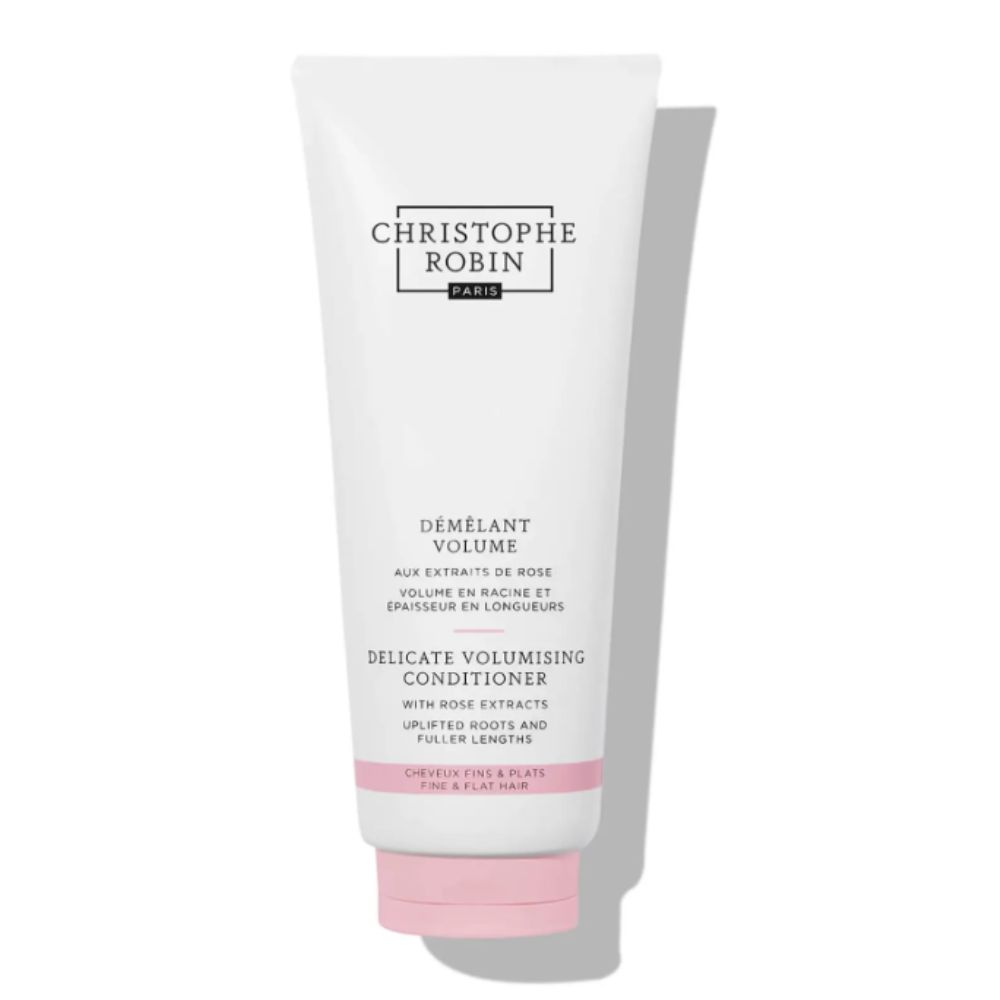
RRP: £30 for 200ml | Key ingredients: Musk rose oil, baobab extract
Formulated specifically for the needs of finer and flatter hair, this protective and detangling conditioner has a gel-like consistency that imparts weightless hydration. The conditioner is laden with rose oil and baobab leaf extracts, which lock in moisture without leaving behind any residue. It also maintains the hair's acid pH, which keeps coloured hair looking tip-top – something that is always a plus in our books.
This gorgeously scented option really boosted the volume and body of my hair, while also working to smooth and restore my hair fibres to a more silky state. The consistency of this product also meant that my strands – which usually look greasy fairly quickly after washing – felt super clean even the day after washing.
Buy if: You want a super lightweight formula that smells great
Avoid if: You don't like rose scents
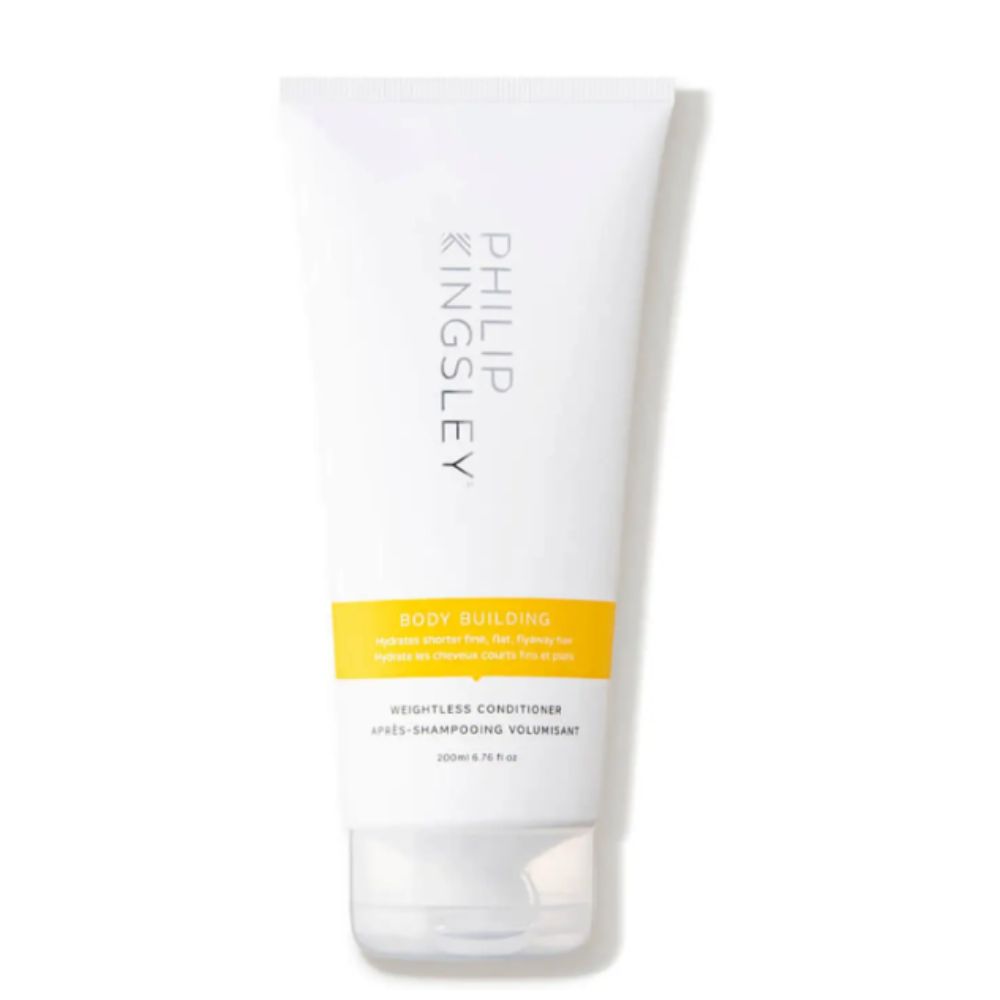
RRP: £27 for 200ml | Key ingredients: Wheat protein, behentrimonium chloride, silicone
This Philip Kingsley conditioner is a great option for hair that's both fine and flat, with its ingredient list including strand-plumping wheat protein – something I noticed getting to work even when my hair was still wet. As well as feeling thicker and plumper, my hair also looked and felt light, shiny and healthy once it had dried.
I used this alongside the brand's Body Building shampoo and, if you want your hair to visibly double in size, I'd recommend using their Maximizer Root Volumising Spray, too. This combination may not be ideal for damaged or very dry hair, but if you use a hair mask like the iconic Elasticizer weekly, you'll really see a difference.
Buy if: You want lightweight and noticeably thicker-looking hair after one wash
Avoid if: You have damaged and/or dry hair, as it's particularly light
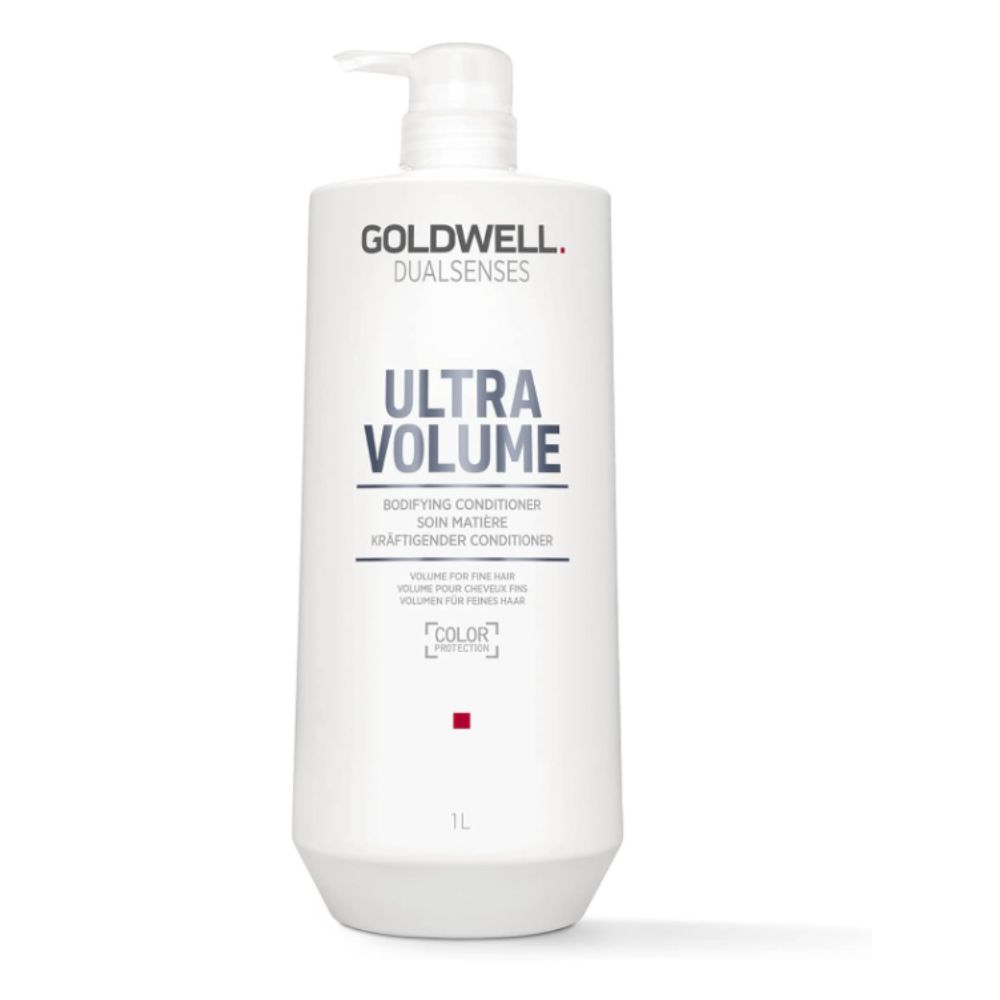
RRP: £16.65 for 200ml | Key ingredients: Rice protein
The first thing I noticed about this conditioner was its gel-like texture, which felt lovely and light. It soaked in quickly, getting to work on pesky knots and general dryness in my hair. I was pleased with a number of aspects of this conditioner, such as the fragrance, how quickly it sprung into action and how my hair looked after using it.
I can also report that the product's built-in colour protection did its job on my freshly dyed hair, helping it to stay looking bright, shiny and bouncy. However, it is worth noting that this product contained sulphates (for those who prefer to avoid them) and, sadly, it isn't cruelty-free.
Buy if: If you have coloured and/or bleached hair that needs a gentle formula
Avoid if: You prefer sulphate-free and cruelty-free formulas
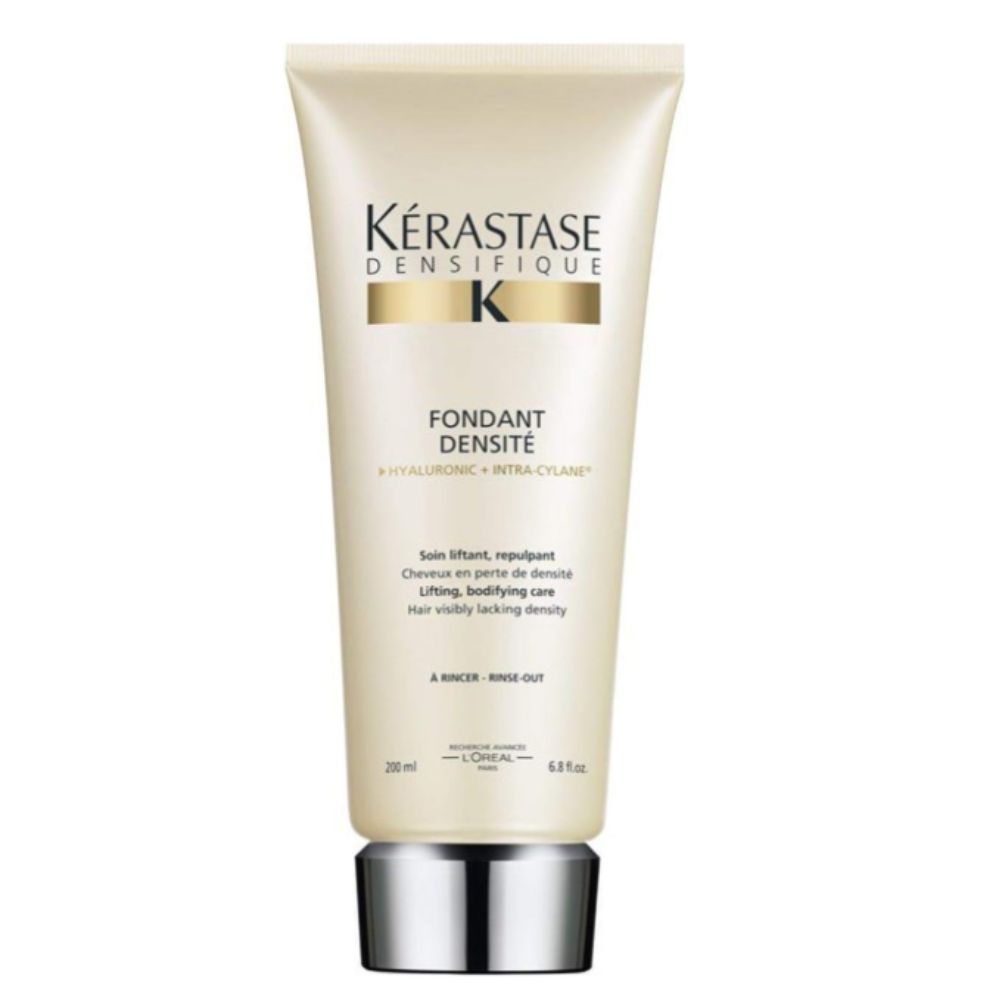
RRP: £35.85 for 200ml | Key ingredients: Hyaluronic acid, ceramides, Inrtra-Cylane® technology
Kérastase products are all but guaranteed to be a safe and reliable bet when it comes to haircare; the brand's reputation precedes it. Formulated with ceramides, hyaluronic acid and Inrtra-Cylane® technology that locks in moisture, this conditioner’s ingredients work to strengthen hair fibres from damage while also helping boost the hair's volume and shine.
I enjoyed how easily this conditioner quenched my parched ends without adding any kind of heaviness that weighed them down. It also quickly detangled my hair, coating each of my strands and leaving them silky smooth, which was impressive. For me, its downfall is its price tag – but, as I've said before, consider the longevity in expensive shampoos and conditioners, especially when caring for the health of thinning hair.
Buy if: You want to hydrate and detangle fine locks
Avoid if: You tend to run through your conditioners quickly
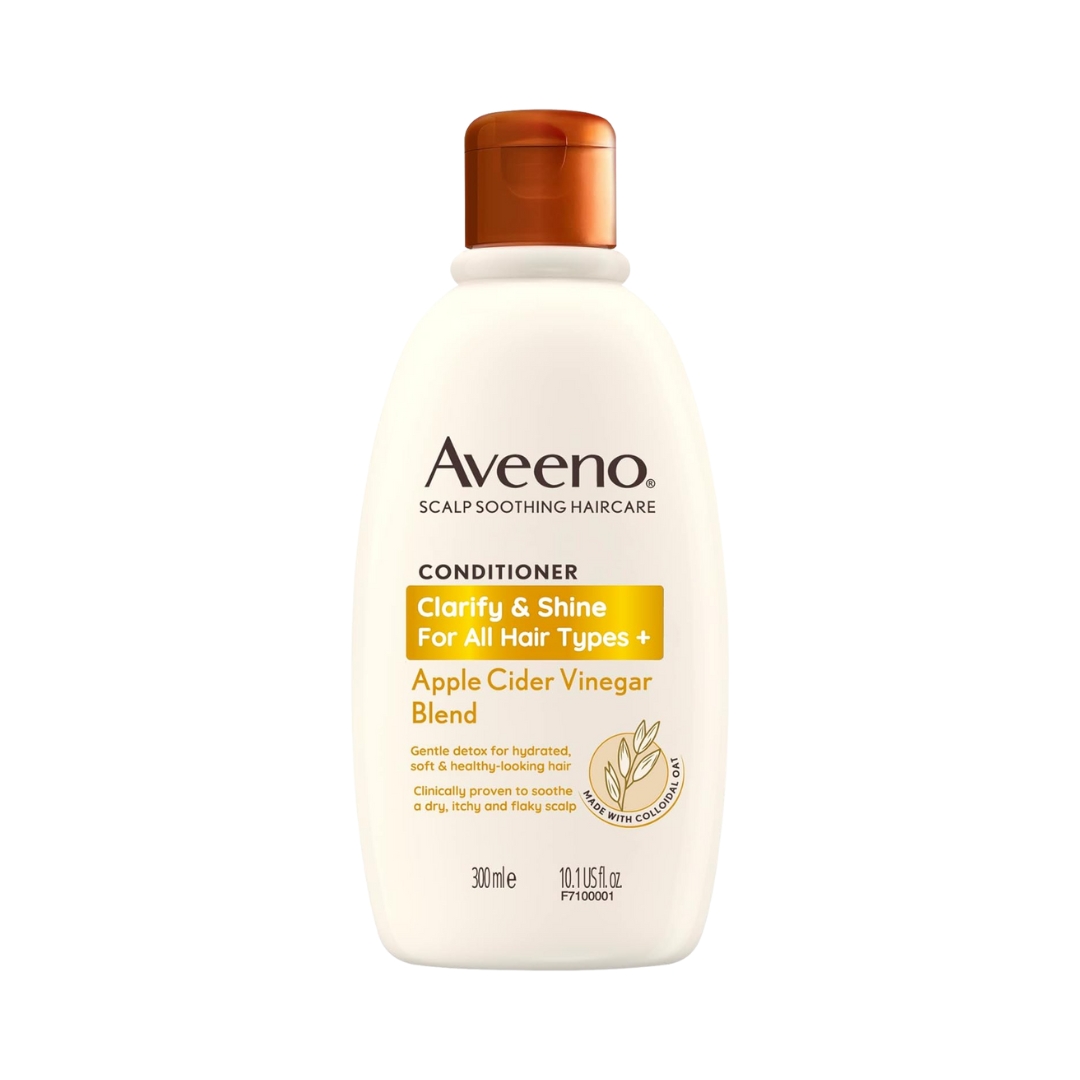
RRP: £7.99 for 300ml | Key ingredients: Colloidal oats, apple cider vinegar, botanical extracts
Aveeno boasts a stellar affordable lineup of hardworking haircare products that have pH-balanced formulas packed full of botanical ingredients, but the Apple Cider Vinegar Conditioner is the standout option for fine (and prone to getting greasy quickly) hair like mine.
The first thing I noticed was the gorgeous scent of this conditioner, which thankfully isn't anything like the sharp, tangy aroma of apple cider vinegar. My hair was left detangled and feeling silky smooth but with no leftover residue or heaviness. Our digital beauty writer, Sennen Prickett, agrees that this is a range worth trusting, as she swears by the Aveeno Apple Cider Vinegar Shampoo and Conditioner for tackling her greasy locks.
Buy if: Your hair tends to get greasy quickly
Avoid if: You want a more nourishing formula
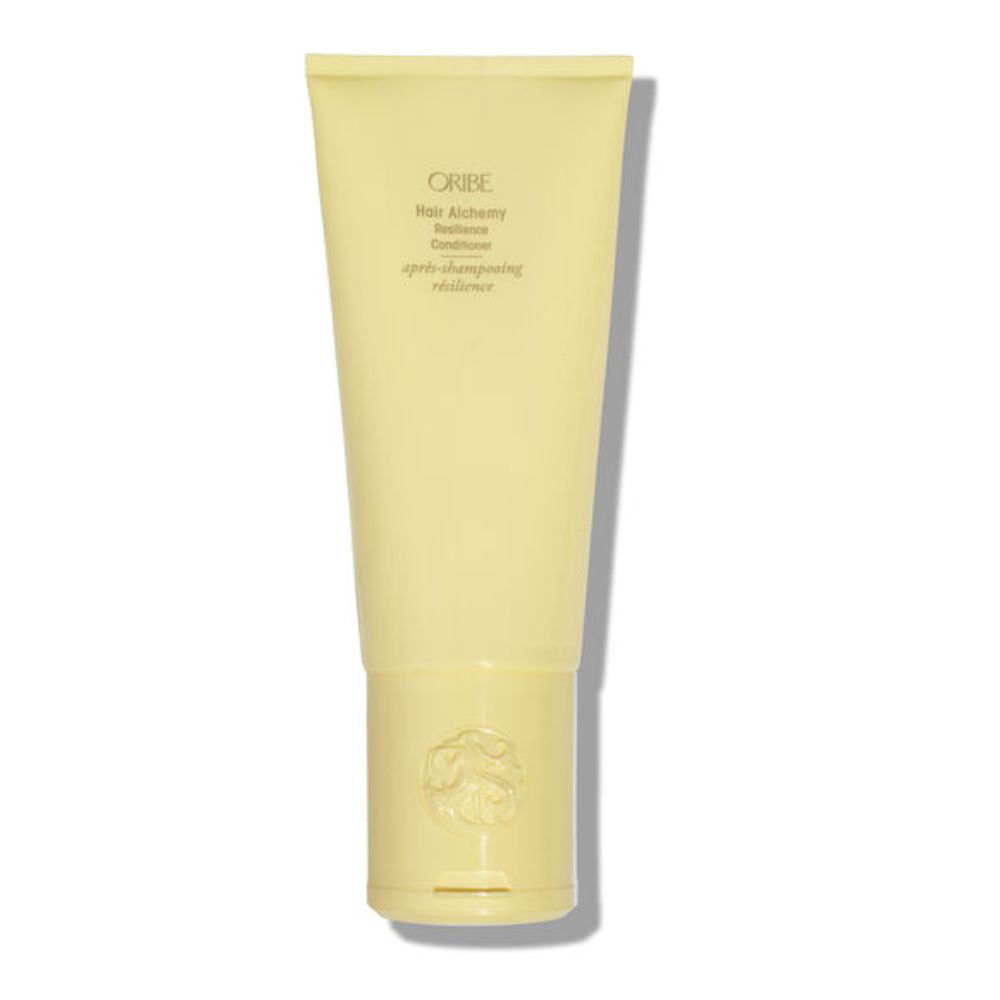
RRP: £52 for 200ml | Key ingredients: Chia seed, bamboo leaf, hyaluronic acid, plant extracts
The price tag of Oribe's Hair Alchemy Resilience Conditioner is far from low, we know. But if your hair is quite damaged and you can commit to the extra spend, it's worth it. Working wonders on strands, this conditioner's rich ingredients help hydrate strands and lock in moisture. Despite my initial concerns regarding the thicker consistency, the formula loosened up and felt more lightweight when I rubbed it between my hands to apply.
The brand claims that this conditioner helps to repair existing damage and prevent it, too, which really appealed to me. If you’re someone who uses a lot of heat on your hair, with the best straighteners or similar, or you often bleach it, it would definitely be a beneficial addition to your haircare routine. The results left my hair feeling stronger and thicker, even while it was still wet.
Buy if: You have dry and/or damaged hair in need of deep hydration
Avoid if: Your hair doesn't need much nourishment; you have a limited budget
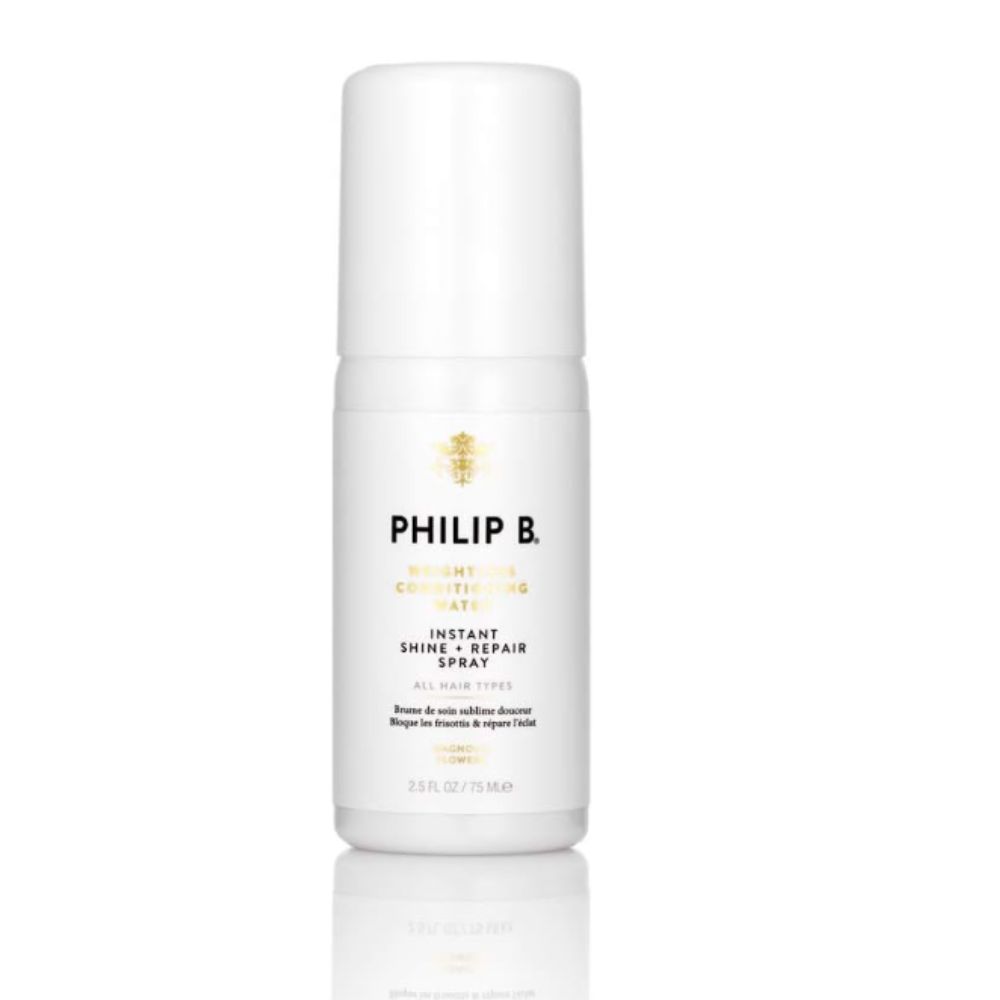
RRP: £42 for 150ml | Key ingredients: Chamomile, comfrey, henna flower, horsetail grass, hops, rosemary, nettle leaf, orange peel
If you have fine hair that has a tendency to go limp, the thought of using a leave-in conditioner might feel completely counter-intuitive. The thing is, Philip B Weightless Conditioning Water is just that: a weightless hair treatment that hydrates without flattening the hair.
This "water" is filled with hair-friendly plant extracts and the scent of magnolia flowers. With just a few spritzes on my towel-dried hair, I waved goodbye to tangles and flyaways. Another thing I love about this product is that you can apply it to dry hair, too. It's also a good choice for those seeking vegan shampoo and conditioner, as the brand notes almost all of their products are vegan (with the exception of two styling products). Just be prepared for the price, which is pretty expensive.
Buy if: You want an ultra lightweight formula that's quick and easy to apply
Avoid if: You want a traditional rinse-off conditioner
How we tested the best conditioner for fine hair
As someone with particularly thin strands, I'm well-versed in what makes the best hair products for very fine hair, be they the best dry shampoos or heavier products like conditioner. But to ensure this guide covers those that are truly the best conditioners for fine hair on the market, I put a broad range of products through their paces during the testing process.
I tried several conditioners across all price points, ranging from drugstore to luxury brands. For those wondering is expensive shampoo better – and whether it's also worth spending more on conditioner – in my honest opinion, if you have fine or thin(ning) hair, making that investment is entirely worth it. I also took note of any interesting ingredients in the formula, as well as practical aspects such as formula consistency and packaging.
What ingredients help boost volume in fine and thinning hair?
Lisa Caddy, consultant trichologist at Philip Kingsley explains that the ingredients that work with the components of the hair, such as keratin, are effective for volumising fine hair, she says, adding: "Cellulose is a thickening agent also frequently used to give hair more volume."
Vitamins are also key to volumising fine hair – particularly vitamin B5, which Nicole Petty, hair expert at Milk + Blush, notes is able to penetrate the hair shaft and increase moisture retention, which helps to keep your hair hydrated and healthy. “Vitamins C and E are essential for boosting collagen production and improving blood circulation that can help with hair growth and iron absorption," she adds.
Improving blood circulation in the scalp can also encourage healthy hair growth and volume. Try massaging lighter natural oils, such as sunflower, almond or coconut oil, into your scalp and roots as a pre-shampoo treatment. "Sunflower oil is an anti-inflammatory that can prevent dandruff and bacterial buildup that causes scalp dryness and itchiness," Petty explains. "Applying coconut oil on the mid-lengths and ends of your hair can [also] prevent protein loss and minimise breakage, which fine hair is susceptible to."
What ingredients should you avoid if you have fine hair or thinning hair?
There are also a handful of ingredients often found in conditioner that are worth avoiding if you have thinner hair. "Heavy oils and styling products are not ideal for fine hair, as it possesses fewer layers of hair cuticle that, if weighed down, can make the hair look flat and lifeless," Petty explains.
Silicones, which create a smooth feeling in hair, can have a negative impact, Petty notes, as they can build up on the hair over time. She adds that they can "prevent other products from properly penetrating the hair shaft", which may, in some cases, lead to dryness and breakage. To combat this, add a clarifying shampoo to your regime to thoroughly remove build-up and deeply clean your hair.
How to properly shampoo and condition your hair
It may be tempting to apply it into the roots, but conditioner should only be applied to the mid-lengths and ends of your hair – never to your scalp – if you want to avoid weighing it down. As Caddy says: "Shampoo is intended for the scalp and conditioner is for the hair." For those struggling with tangles, she recommends you "use a wide tooth comb" before rinsing the conditioner out.
Echoing Caddy's advice, Petty explains that the knock-on is less volume at the roots and causing oil production to occur faster, meaning you will have to wash it again sooner. "It is best to split your hair into sections to ensure it is fully saturated and focus on the hair from the chin downwards," she says. "Leave it to sit for at least three minutes or longer to maximise its effectiveness, before rinsing it out with cold water for one minute to help seal and smooth the cuticle and dry with a microfibre towel." She also advises swapping out your conditioner for one of the best hair masks once a week to quench dehydrated ends.
How often should you wash fine hair or thinning hair?
How often you should wash your hair depends on a few different personal factors, such as how much oil your scalp produces to the density, texture and thickness of strands.
"As fine hair is easily weighed down by oil and build-up that can make it look flat and greasy, it will need cleansing more frequently," Petty explains. "However, be careful not to over wash, as this can cause your scalp to become dry, flaky and damaged." This, she warns, will in turn cause your scalp to increase oil production to compensate for the lack of moisture, meaning it will get greasy more quickly as a result.
That said, Petty also says that underwashing can be equally detrimental, as more product, oil and dead skin will accumulate and may result in flaking. “If you’re naturally prone to greasier hair, this could actually be a sign that your scalp is dry and may be overproducing oils to try to balance this out," she says. Though it might seem counterintuitive, Petty says that reducing hair washes from daily to alternate days and using scalp oils can help to remedy this (try one of the best dry shampoos for oily hair if you're concerned about greasiness). "Use lightweight and deep cleansing shampoos that rid the scalp of dirt and look for thickening ingredients such as keratin and panthenol," she recommends.
Sign up to our free daily email for the latest royal and entertainment news, interesting opinion, expert advice on styling and beauty trends, and no-nonsense guides to the health and wellness questions you want answered.

Aoife is an Irish journalist and writer with a background in creative writing, comedy, and TV production.
Formerly woman&home's junior news editor and a contributing writer at Bustle, her words can be found in the Metro, Huffpost, Delicious, Imperica and EVOKE.
Her poetry features in the Queer Life, Queer Love anthology.
Outside of work you might bump into her at a garden center, charity shop, yoga studio, lifting heavy weights, or (most likely) supping/eating some sort of delicious drink/meal.
- Sennen PrickettDigital Beauty Writer
